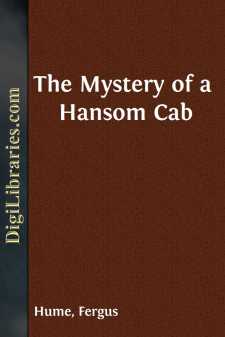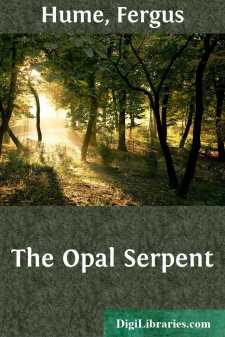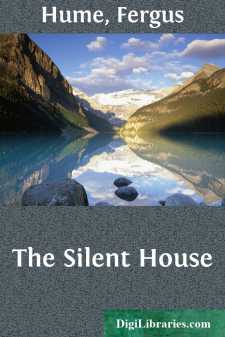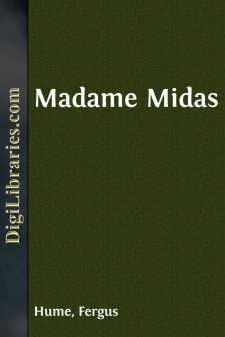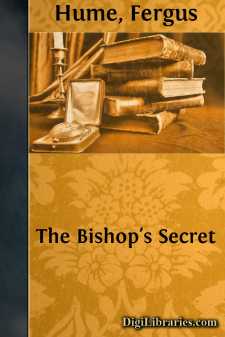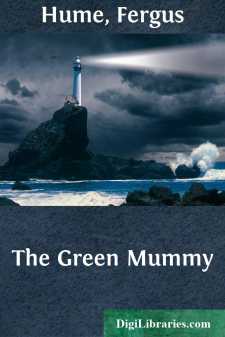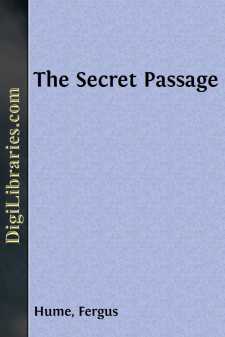Categories
- Antiques & Collectibles 13
- Architecture 36
- Art 48
- Bibles 22
- Biography & Autobiography 813
- Body, Mind & Spirit 142
- Business & Economics 28
- Children's Books 17
- Children's Fiction 14
- Computers 4
- Cooking 94
- Crafts & Hobbies 4
- Drama 346
- Education 46
- Family & Relationships 57
- Fiction 11829
- Games 19
- Gardening 17
- Health & Fitness 34
- History 1377
- House & Home 1
- Humor 147
- Juvenile Fiction 1873
- Juvenile Nonfiction 202
- Language Arts & Disciplines 88
- Law 16
- Literary Collections 686
- Literary Criticism 179
- Mathematics 13
- Medical 41
- Music 40
- Nature 179
- Non-Classifiable 1768
- Performing Arts 7
- Periodicals 1453
- Philosophy 64
- Photography 2
- Poetry 896
- Political Science 203
- Psychology 42
- Reference 154
- Religion 513
- Science 126
- Self-Help 84
- Social Science 81
- Sports & Recreation 34
- Study Aids 3
- Technology & Engineering 59
- Transportation 23
- Travel 463
- True Crime 29
A Coin of Edward VII A Detective Story
by: Fergus Hume
Categories:
Description:
Excerpt
CHAPTER I
THE CHRISTMAS TREE
Two old ladies sat in the corner of the drawing-room. The younger—a colonial cousin of the elder—was listening eagerly to gossip which dealt with English society in general, and Rickwell society in particular. They presumably assisted in the entertainment of the children already gathered tumultuously round the Christmas tree, provided by Mr. Morley; but Mrs. Parry's budget of scandal was too interesting to permit the relaxing of Mrs. McKail's attention.
"Ah yes," said Mrs. Parry, a hatchet-faced dame with a venomous tongue and a retentive memory, "Morley's fond of children, although he has none of his own."
"But those three pretty little girls?" said Mrs. McKail, who was fat, fair, and considerably over forty.
"Triplets," replied the other, sinking her voice. "The only case of triplets I have met with, but not his children. No, Mrs. Morley was a widow with triplets and money. Morley married her for the last, and had to take the first as part of the bargain. I don't deny but what he does his duty by the three."
Mrs. McKail's keen grey eyes wander to the fat, rosy little man who laughingly struggled amidst a bevy of children, the triplets included. "He seems fond of them," said she, nodding.
"Seems!" emphasised Mrs. Parry shrewdly. "Ha! I don't trust the man. If he were all he seems, would his wife's face wear that expression? No, don't tell me."
Mrs. Morley was a tall, lean, serious woman, dressed in sober grey. She certainly looked careworn, and appeared to participate in the festivities more as a duty than for the sake of amusement. "He is said to be a good husband," observed Mrs. McKail doubtfully. "Are you sure?"
"I'm sure of nothing where men are concerned. I wouldn't trust one of them. Morley is attentive enough to his wife, and he adores the triplets—so he says; but I go by his eye. Orgy is written in that eye. It can pick out a pretty woman, my dear. Oh, his wife doesn't look sick with anxiety for nothing!"
"At any rate, he doesn't seem attentive to that pretty girl over there—the one in black with the young man."
"Girl! She's twenty-five if she's an hour. I believe she paints and puts belladonna in her eyes. I wouldn't have her for my governess. No, she's too artful, though I can't agree with you about her prettiness."
"Is she the governess?"
Mrs. Parry nodded, and the ribbons on her cap curled like Medusa's snakes. "For six months Mrs. Morley has put up with her. She teaches the Tricolor goodness knows what."
"The Tricolor?"
"So we call the triplets. Don't you see one is dressed in red, another in white, and the third in blue? Morley's idea, I believe. As though a man had any right to interest himself in such things. We call them collectively the Tricolor, and Anne Denham is the governess. Pretty? No. Artful? Yes. See how she is trying to fascinate Ware!"
"That handsome young man with the fair moustache and——"
"The same," interrupted Mrs. Parry, too eager to blacken character to give her friend a chance of concluding her sentence. "Giles Ware, of Kingshart—the head of one of our oldest Essex families. He came into the estates two years ago, and has settled down into a country squire after a wild life. But the old Adam is in him, my dear. Look at his smile—and she doesn't seem to mind. Brazen creature!" And Mrs. Parry shuddered virtuously.
The other lady thought that Ware had a most fascinating smile, and was a remarkably handsome young man of the fair Saxon type. He certainly appeared to be much interested in the conversation of Miss Denham. But what young man could resist so beautiful a woman? For in spite of Mrs. Parry's disparagement Anne was a splendidly handsome brunette—"with a temper," added Mrs. McKail mentally, as she eyed the well-suited couple.
Mrs. Parry's tongue still raged like a prairie fire. "And she knows he's engaged," she snorted. "Look at poor Daisy Kent out in the cold, while that woman monopolizes Ware! Ugh!"
"Is Miss Kent engaged to Mr. Ware?"
"For three years they have been engaged—a family arrangement, I understand....



